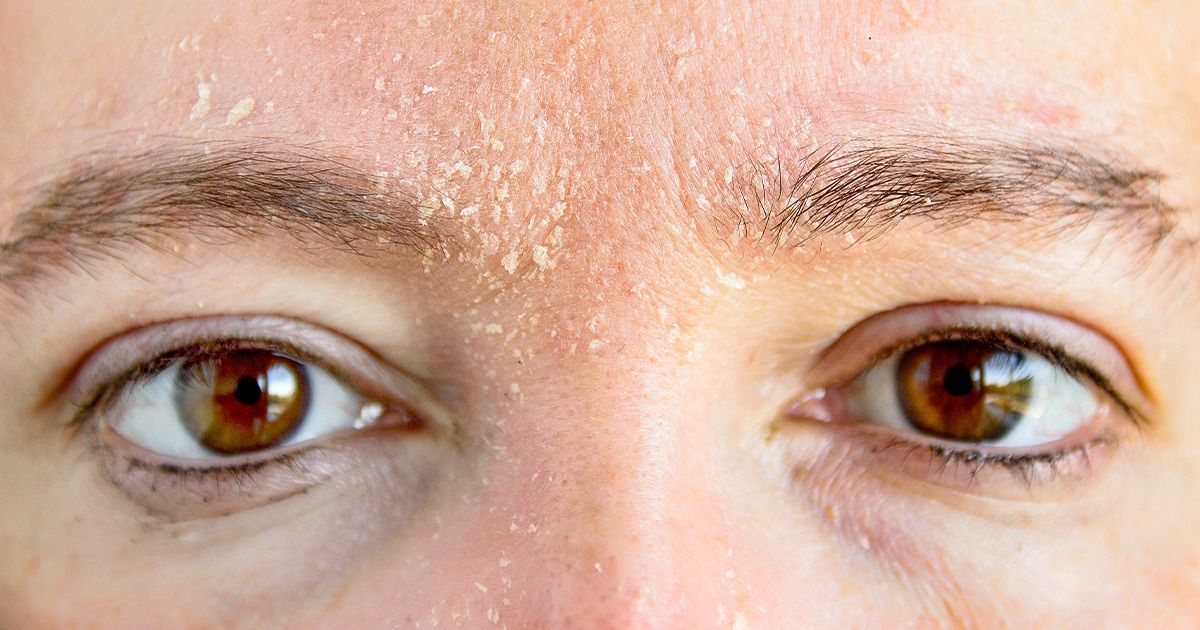Morning breath, also known as halitosis, is a common phenomenon that many people experience upon waking up. Although it’s usually not a sign of serious health issues, it can be embarrassing and affect your confidence throughout the day. In this comprehensive guide, we’ll explore what causes morning breath and provide you with five practical strategies to help eliminate it. From rethinking your oral hygiene routine to making small lifestyle adjustments, these tips are designed to give you fresh breath every morning.
What Causes Morning Breath
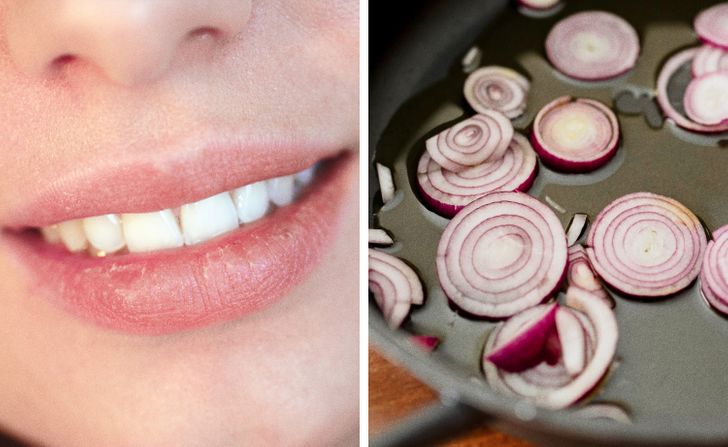
Understanding the root causes of morning breath is essential for tackling the problem effectively. Several factors contribute to the development of bad breath upon waking:
Reduced Saliva Production:
During sleep, saliva production decreases significantly. Saliva plays a crucial role in washing away food particles and neutralizing acids produced by bacteria in the mouth. With less saliva at night, bacteria can proliferate, leading to the foul odor commonly experienced in the morning.
Bacterial Activity:
The mouth is home to millions of bacteria, most of which are harmless. However, when these bacteria break down food particles and proteins during the night, they release volatile sulfur compounds (VSCs), which are primarily responsible for bad breath.
Poor Oral Hygiene:
Inadequate brushing and flossing allow food debris and bacteria to accumulate on the teeth, tongue, and gums. Over time, this buildup can worsen morning breath.
Mouth Breathing:
Sleeping with your mouth open leads to dryness, which further reduces saliva and creates an environment where odor-causing bacteria can thrive.
Diet and Lifestyle:
Consuming certain foods (like garlic and onions) and beverages (such as coffee) can contribute to bad breath. Additionally, habits like smoking and alcohol consumption exacerbate the problem.
Understanding these causes is the first step in effectively combating morning breath. By addressing the underlying issues, you can adopt strategies that not only improve your breath but also boost your overall oral health.
How To Get Rid Of Morning Breath
Don’t Use Mouthwash After Every Brush: Finding the Right Balance
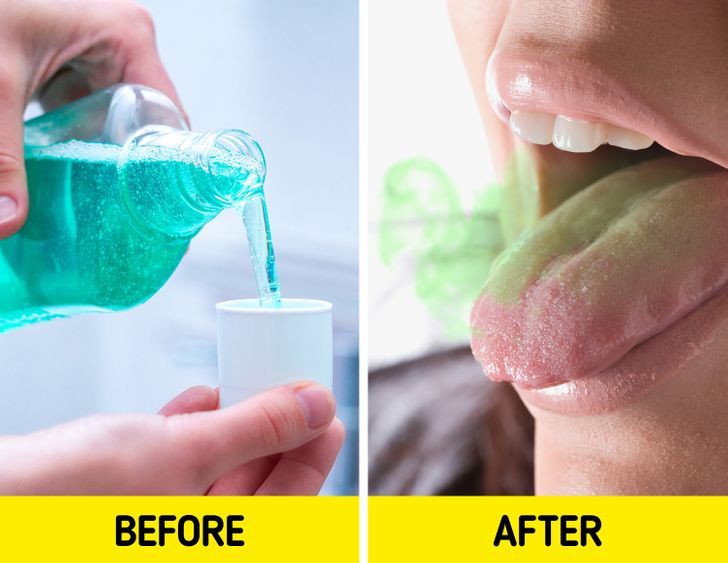
While mouthwash is a common tool in many people’s oral hygiene routines, using it too frequently or immediately after brushing can sometimes do more harm than good.
Key Considerations:
Disrupting the Natural Balance:
Overuse of mouthwash, especially those containing alcohol, can disrupt the natural balance of bacteria in your mouth. While some bacteria cause bad breath, others are essential for maintaining a healthy oral environment. Excessive use of mouthwash may kill beneficial bacteria, which can lead to an imbalance and worsen bad breath over time.
Dry Mouth:
Alcohol-based mouthwashes can also cause dryness in the mouth. As discussed earlier, reduced saliva production is a primary cause of morning breath. Using mouthwash too often may exacerbate this problem by further drying out your mouth.
Alternative Options:
Consider using a gentle, alcohol-free mouthwash or natural alternatives like diluted apple cider vinegar. These options can help freshen your breath without causing the side effects associated with harsher formulas.
Expert Tip:
According to the American Dental Association, it’s best to use mouthwash as an adjunct to brushing and flossing, not as a replacement. Overuse can lead to issues such as dry mouth and an imbalance in oral flora. Use mouthwash in moderation—ideally once a day—and always follow up with proper brushing and flossing.
Don’t Sleep With Your Mouth Open: Keep Your Breath Fresh Overnight
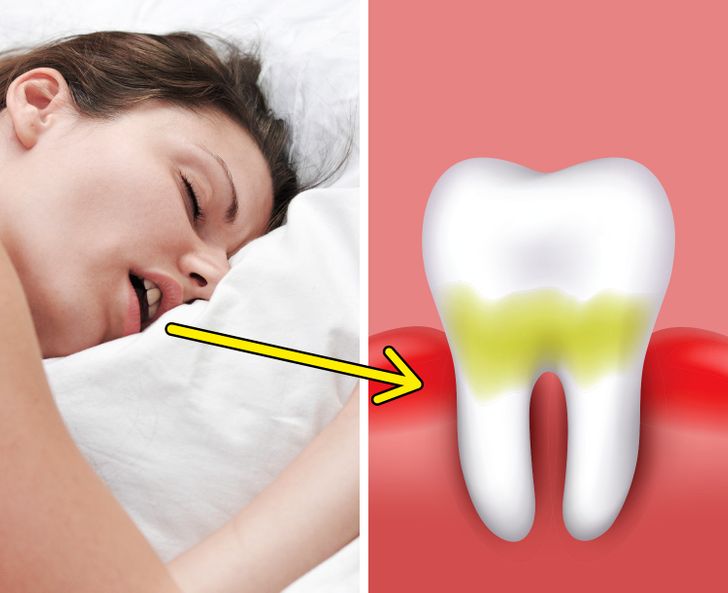
One of the simplest yet most effective ways to reduce morning breath is to avoid sleeping with your mouth open. Mouth breathing during sleep can lead to dryness, which creates a perfect environment for odor-causing bacteria to thrive.
Why Mouth Breathing Matters:
Dryness and Reduced Saliva:
Saliva is essential for keeping the mouth clean and neutralizing acids. When you sleep with your mouth open, saliva evaporates more quickly, leading to a dry mouth and, consequently, bad breath.
Increased Bacterial Growth:
A dry environment in your mouth allows bacteria to multiply unchecked, contributing to the production of volatile sulfur compounds that cause bad breath.
How to Encourage Nasal Breathing:
Use a Humidifier:
A humidifier in your bedroom can help maintain moisture in the air, which may reduce the drying effects of mouth breathing.
Nasal Strips:
Nasal strips can improve airflow through your nose, reducing the need to breathe through your mouth during sleep.
Address Underlying Issues:
Conditions such as nasal congestion or sleep apnea can force you to breathe through your mouth. Consult with a healthcare provider to address these issues.
For additional tips on improving breathing during sleep, Sleep Foundation provides valuable insights on promoting nasal breathing and enhancing sleep quality.
Give Oil Pulling a Try: A Natural Remedy for Cleaner Breath
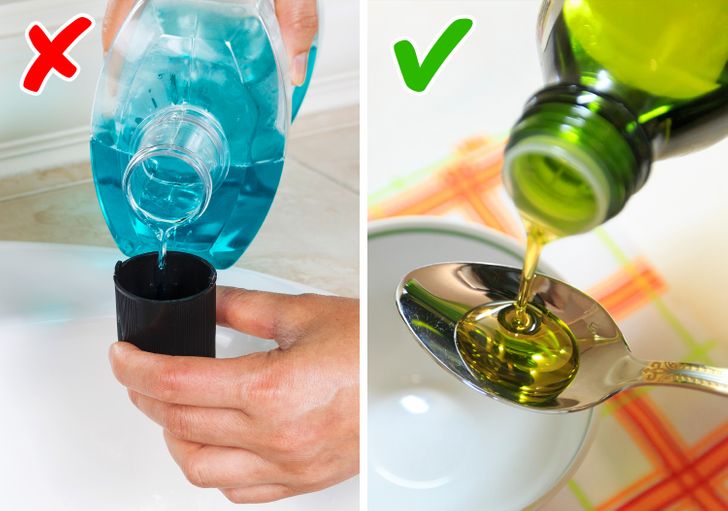
Oil pulling is an ancient Ayurvedic practice that involves swishing oil in your mouth for several minutes to reduce bacteria and improve oral hygiene. This natural remedy has gained popularity as a way to combat bad breath, including morning breath.
How Oil Pulling Works:
Reduces Bacterial Load:
Swishing oil (typically coconut, sesame, or sunflower oil) in your mouth helps reduce the number of bacteria by trapping and dissolving the lipid membranes of harmful microorganisms. This process can lower the production of volatile sulfur compounds responsible for bad breath.
Promotes Overall Oral Health:
Regular oil pulling can reduce plaque buildup, soothe inflamed gums, and improve overall oral hygiene. These benefits contribute to fresher breath over time.
Simple and Natural:
Oil pulling is a cost-effective and natural remedy that doesn’t rely on chemicals or synthetic ingredients, making it an attractive option for those seeking holistic health solutions.
Practical Steps for Oil Pulling:
- Choose Your Oil:
Coconut oil is a popular choice due to its pleasant taste and antimicrobial properties. - Swish for 10-15 Minutes:
Place a tablespoon of oil in your mouth and swish it around, making sure not to swallow. This process allows the oil to bind with bacteria and toxins. - Spit It Out:
After 10-15 minutes, spit the oil into a trash can (not the sink, as it can clog your pipes). - Follow Up with Brushing:
Brush your teeth as usual to remove any remaining residue.
For more information on oil pulling and its benefits, Medical News Today provides an in-depth look at this traditional practice.
Be Careful With Coffee: Moderation Is Key for Fresh Breath

Coffee is a beloved morning beverage for many, but it can also contribute to bad breath if not consumed in moderation. While coffee has many health benefits, its consumption can have some downsides for your oral hygiene.
How Coffee Affects Breath:
Acidity and Dry Mouth:
Coffee is acidic and can cause a temporary decrease in saliva production. Reduced saliva means less natural cleaning of your mouth, which can lead to bacterial growth and bad breath.
Staining and Odor:
The compounds in coffee can not only stain your teeth but also leave an unpleasant odor that lingers throughout the day.
Balancing Benefits and Drawbacks:
While coffee provides an energy boost and offers several health benefits, being mindful of your intake is essential. Consider drinking water alongside your coffee to help counteract the drying effects.
Practical Tip:
Try to limit your coffee consumption to moderate amounts and ensure you stay well-hydrated. If you’re a heavy coffee drinker, consider rinsing your mouth with water after your cup to reduce the impact on your breath.
For additional reading on coffee’s effects on oral health, Healthline offers valuable insights into the pros and cons of coffee consumption.
Don’t Forget to Brush Your Tongue: The Key to Complete Oral Freshness
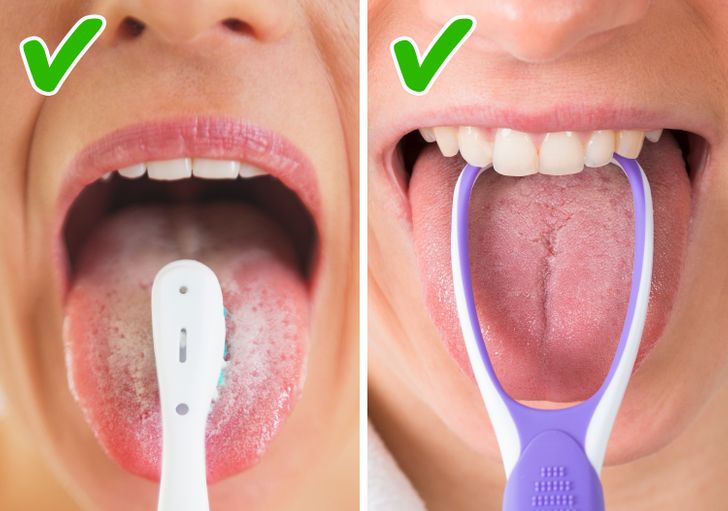
The tongue is a major source of morning breath. Bacteria and food particles can accumulate on its surface, contributing significantly to bad breath. Brushing your tongue should be an essential part of your oral hygiene routine.
Why Tongue Brushing Matters:
Eliminates Bacteria:
The tongue’s rough surface provides an ideal environment for bacteria to thrive. Regularly brushing your tongue helps remove these bacteria, reducing the production of foul-smelling compounds.
Enhances Overall Cleanliness:
Even if you brush your teeth thoroughly, neglecting your tongue can leave a significant amount of bacteria behind. Including tongue brushing in your routine ensures a more comprehensive clean.
Improves Taste and Oral Health:
A clean tongue not only improves your breath but also enhances your sense of taste and overall oral health.
Tips for Effective Tongue Brushing:
- Use a Dedicated Tongue Scraper:
Tongue scrapers are specifically designed to remove debris from the tongue’s surface effectively. Alternatively, you can use the bristles of your toothbrush. - Be Gentle:
The tongue is sensitive, so brush gently to avoid irritation. - Include It in Your Routine:
Make tongue brushing a daily habit—ideally twice a day—to maintain optimal oral hygiene.
For more detailed advice on tongue cleaning and its benefits, the American Dental Association provides guidelines on maintaining fresh breath.
Additional Strategies for a Fresher Morning Breath
While the five methods outlined above are highly effective, there are a few extra strategies you can adopt to ensure your morning breath is kept at bay:
Stay Hydrated:
Drinking plenty of water throughout the day helps maintain saliva production, which is essential for naturally cleaning your mouth. Dehydration is a major contributor to dry mouth and subsequent bad breath.
Maintain a Healthy Diet:
A diet rich in fruits, vegetables, and whole grains can help reduce bad breath. Crunchy fruits and vegetables, like apples and carrots, help stimulate saliva production and mechanically clean teeth.
Regular Dental Check-Ups:
Regular visits to your dentist are crucial for maintaining oral health. Professional cleanings and early detection of dental issues can prevent chronic bad breath and other complications.
Chew Sugar-Free Gum:
Chewing sugar-free gum can boost saliva flow and help neutralize odors, especially if you’re on the go.
For more insights on maintaining fresh breath and overall oral health, WebMD offers comprehensive advice and tips from dental professionals.
Conclusion: Wake Up to a Fresher, More Confident You
Morning breath may be a common issue, but it’s not one you have to live with. By understanding the causes—from reduced saliva production and bacterial buildup to lifestyle factors like coffee consumption and mouth breathing—you can take proactive steps to eliminate it. Incorporating practical strategies such as moderating mouthwash use, avoiding sleeping with your mouth open, trying oil pulling, being mindful with your coffee intake, and not forgetting to brush your tongue can transform your oral hygiene routine.
A fresh mouth in the morning not only boosts your confidence but also sets a positive tone for the rest of your day. With these effective tips and the help of reliable sources like the American Dental Association, Healthline, and WebMD, you can combat morning breath naturally and efficiently.
Remember, consistency is key. Incorporate these habits into your daily routine, and over time you’ll notice a significant improvement in your breath and overall oral health. Start making these changes today, and wake up every morning with a smile and the confidence that comes with truly fresh breath.
For more expert advice on oral care and strategies to maintain a healthy mouth, visit reputable sources such as Mayo Clinic’s Oral Health Center and American Dental Association. Embrace these tips, and enjoy the benefits of a fresher, more vibrant start to your day!
Preview photo credit Shutterstock.com, Shutterstock.com

